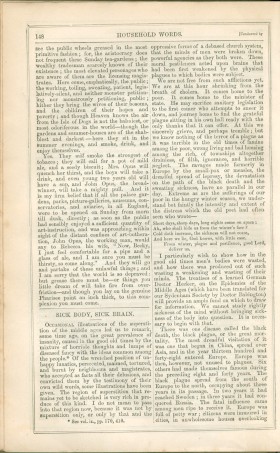By B. N.
I selected three advertisements from the 2 July 1853 issue of The Illustrated London News: one advertises a book on “neurotonics” (or medicine for the nerves), another advertises a cure for “Deafness,” and the last advertises a sanctuary for middle- and upper-class women with “nervous and mental disorders.” None of the advertisements are illustrated and each consists of, at most, a paragraph of text. Because society was undergoing many rapid changes in technology, medicine, and science, fiction in the Victorian era presents anxiety regarding illness and health. Although each advertisement prescribes something unique, each one has an optimistic tone and presents a hopeful image for the invalid. For example, the advertisement for deafness describes its treatment as “one of the most important discoveries ever made in medical science” and states that it is “the only certain and successful treatment known” (535). Continue reading



